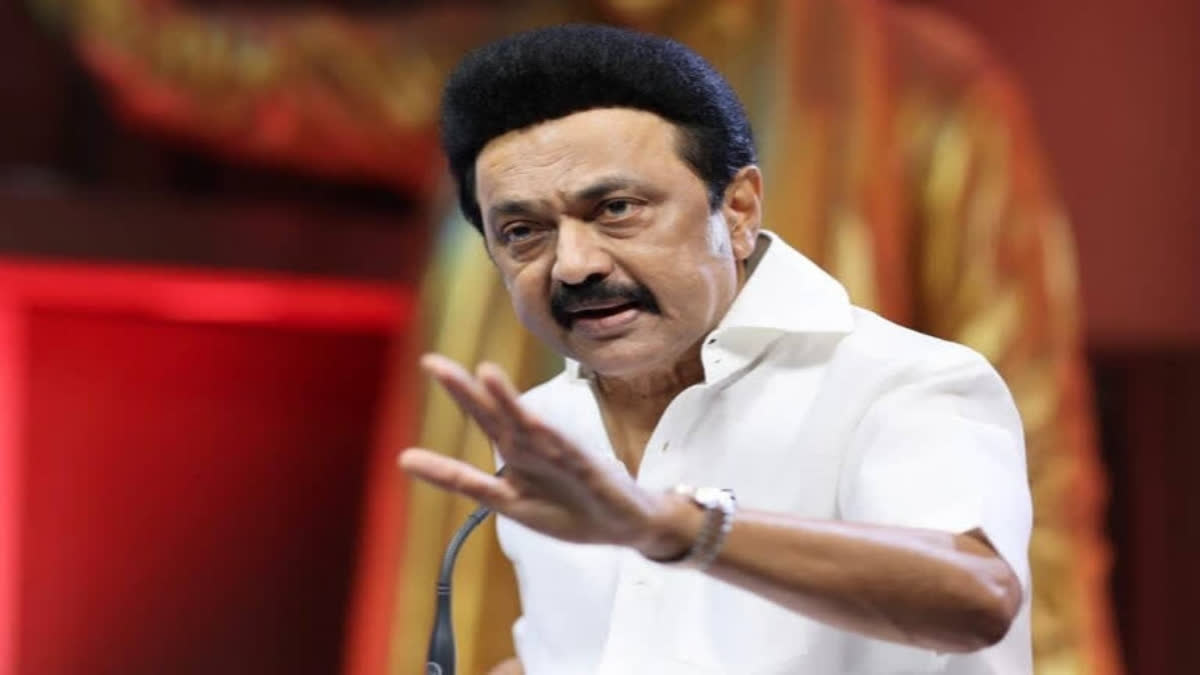Chennai: Rechristening the 263-year-old criminal laws with their Hindi equivalent with improvisation has invited the wrath of DMK president and Tamil Nadu Chief Minister MK Stalin, who described it as a sweeping overhaul and an audacious attempt to tamper with the essence of India's diversity. The three Bills, aimed at overhauling the criminal justice system and replacing the Indian Penal Code (IPC), Criminal Procedure Code (CrPC), and the Indian Evidence Act, were introduced in the Lok Sabha by Union Home Minister Amit Shah. The trio bills are Bharatiya Nyaya Sanhita (for IPC), Bharatiya Nagrik Suraksha Sanhita (for CrPC), and Bharatiya Sakshya (for the Evidence Act).
This was enough to invite swift condemnation from Stalin, who termed it as nothing less than linguistic imperialism. For, it comes close on the heels of Shah's push for Hindi as the national language only last Friday, which was denounced by the Chief Minister as an attempt at imposing Hindi hegemony on non-Hindi speaking states. He took to Twitter to slam the BJP-led Union Government's move. “#Recolonisation in the name of #Decolonisation! The audacious attempt by the Union BJP Government to tamper with the essence of India's diversity through a sweeping overhaul - Bharatiya Nyaya Sanhita, Bharatiya Nagarik Suraksha Sanhita and Bharatiya Sakshya Bill – reeks of linguistic imperialism.”
Also read: Passage of Delhi Services Bill, a Black day for democracy, says Stalin
“It is an affront to the very foundation of #INDIA's unity,” he said and added that hereafter the BJP and Prime Minister Modi have no moral right to utter even the word Tamil. Then recalling the history of agitations against Hindi imposition in Tamil Nadu, he maintained, “In the crucible of history, Tamil Nadu and DMK have emerged as the vanguards against such oppressive overtones. From the Anti-Hindi agitations to safeguarding our linguistic identity, we have withstood the storm of #HindiImposition before, and we shall do it again, with unyielding determination.”
He concluded his post with the following warning: “The fire of resistance against #HindiColonialism is ablaze once more. The bJP's audacious bid to supplant our identity with Hindi will be opposed resolutely. #StopHindiImposition.” Not only the DMK, every party of the Dravidian shade in Tamil Nadu is opposed to the imposition of Hindi. The state had witnessed agitations against Hindi since 1935 and even the towering statesman Rajaji (C Rajagopalachari), had turned against Hindi saying “English ever, Hindi never”. Furthermore, it was the anti-Hindi agitation of 1965 that catapulted the DMK into power. And since then, the state had been following the two language formulas – Mother Tongue (Tamil) and English.
On the need to revamp these laws, Shah said they were intended to serve the interests of British colonialism and not justice delivery. But, no explanation was given for changing the nomenclature of Lord Macaulay's legal edifice into chaste Hindi. “The original intent of the British-made criminal justice system, which was functional since 1863, was to safeguard the British administration and serve the colonial interests and not to deliver justice. As such, the primary focus was punishment and not justice delivery. The three laws would usher in a major change in the criminal justice system in the country.”
It was Lord Macaulay, who was instrumental in the making of the IPC, CrPC, and the Indian Evidence Act, and even the legal fraternity is left aghast at the change of nomenclature. Furthermore, despite Sha's announcement about the repeal of the draconian sedition law, its retention in disguise is also seen with suspicion.



